Cuba: rethinking farming to face the climate crisis
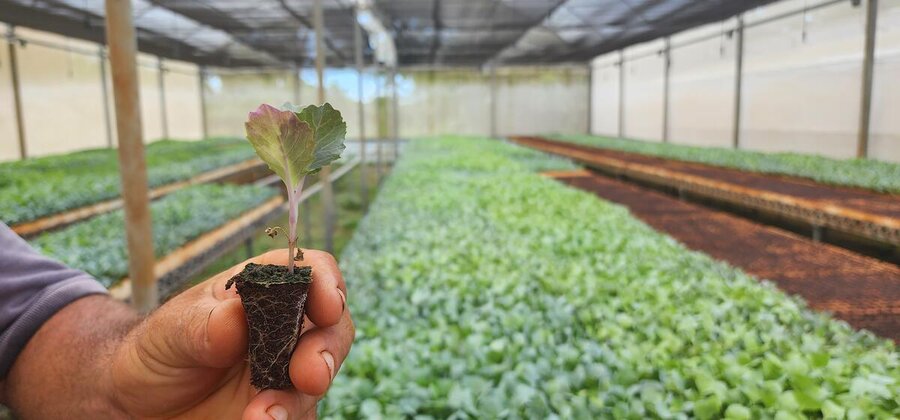
Awash with early morning sun, Yankiel Vázquez’s seedling house is a green ocean of tender baby plants. Here, the farmer, who goes by Payo, grows tomatoes, peppers and cabbage until they are big enough to be planted in open fields.
We are in the outskirts of Sagua la Grande, a town in central Villa Clara province, on Cuba’s Northern coast. This urban seedling house is part of a project backed by the World Food Programme (WFP) to support Cuban smallholder farmers in better responding to climate challenges and help meet growing food demand.
Cuba counts among the Caribbean countries most exposed to hurricanes, droughts and unseasonal rains— which will likely become more frequent and severe with climate change. Other likely impacts — rising sea levels and temperatures, and shrinking rainfall — affect agriculture, forestry and tourism, all pillars of the national economy.
In addition, lack of access to inputs and the rise of fuel prices, among other factors, have caused Cuba’s domestic production to decline. Last year saw less output of staples like tubers, corn, pork, milk and eggs, compared to 2022, official statistics show. Through a raft of different resilience-building initiatives, the World Food Programme (WFP) is working with partners and farmers to help turn those numbers around.
“We are focusing our support on strengthening local food systems as a medium- and long-term guarantee of food supply for social safety nets in the country,” says Meylin Pacheco, WFP Programme Policy Officer. In doing so, WFP is helping to link smallholder producers with primary schools, kindergartens, maternity homes and community kitchens for especially vulnerable people (known as the Family Assistance System).
Seedling houses, like grower Payo’s, are one way for farmers to meet growing demand. In the seedling house, about 98 percent of the seeds sprout. “This is a blessing. I used to sow my seeds in the ground, and nothing would sprout,” says Payo, recalling the challenges caused by changing weather patterns.
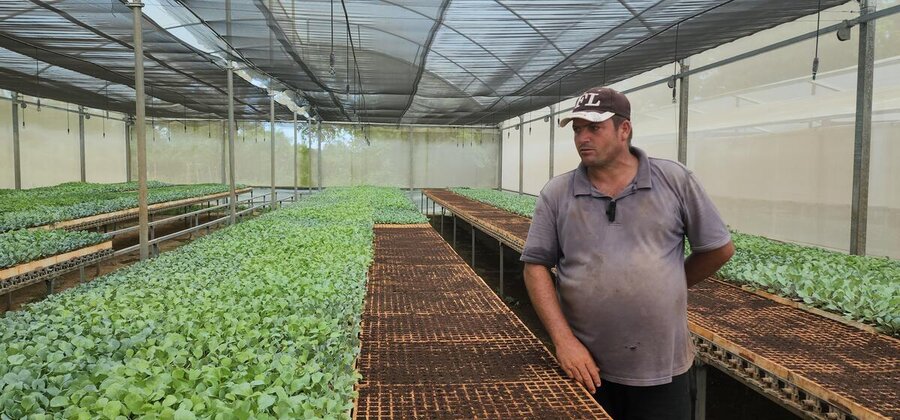
One of the causes of low agricultural yields is precisely the fact that when seedlings are planted in traditional seedbeds, they cannot withstand the stress of transplanting and losses occur. On the other hand, with structures such as the one received by Payo, the plant achieves greater strength, better roots and readiness to survive in the field.
One of 40 farmers participating in the project across three municipalities (Encrucijada, Caibarién and Sagua la Grande), Payo has become an expert in measuring humidity, controlling temperatures and ensuring his plants receive the right amount of sunlight.
His seedling house is equipped with a special mesh to filter sun rays, along with a micro-sprinkler irrigation system, which facilitates rain-like irrigation, similar to what occurs in natural conditions. Payo produces up to 90,000 plants of different types a year. He mainly sells them to farmers associated with the project, but also has surplus to sell to others.
“All the farmers place orders with me, they are very enthusiastic about my plants,” he says. The initiative ensures food is available, including off season, and helps offset the impact of the climate crisis on food production.
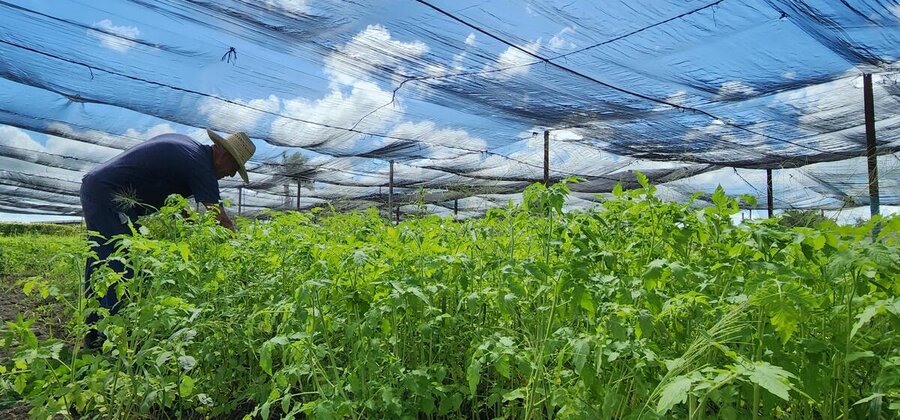
Sheltering vegetables from the sun
Payo is not the only Cuban grower benefitting from WFP’s resilience-building activities. In seven Villa Clara municipalities, WFP provided farmers with irrigation and shaded greenhouse systems to improve their productivity. They also received tricycles to transport their fresh, locally grown vegetables to the 59 schools involved in the project.
The innovations include spreading mesh over fields, which helps reduce sun radiation by up to 40 percent and protects crops such as lettuce, cabbage, spinach, chard or parsley from high temperatures and heavy rains.
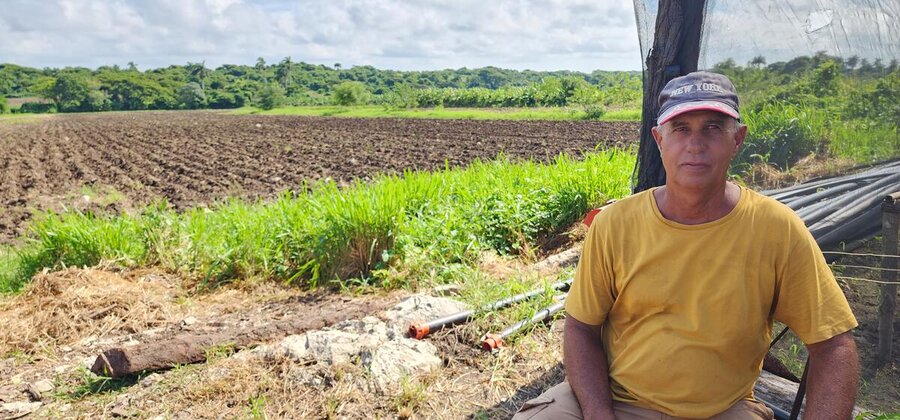
“We have four shaded greenhouses,” project participant Germán Broche says, describing the mesh technique, “each of which gives, for example, between 200 and 400 boxes of lettuce or bok choy every 25 or 30 days.” He delivers his produce twice a week to primary schools in his municipality. “In open air conditions, it takes about 40 days for these plants to grow,” he adds.
With WFP’s support, Broche has also installed a solar-powered irrigation system, which allows him to double production from 10 to 20 metric tons per hectare, while reducing his costs. “I used to need between 10 and 20 liters of fuel to irrigate one hectare – now there are no costs,” he says.
From lab to field: super seeds
Using the right type of seeds can also help overcome climate-related challenges and reduce food losses. To introduce new varieties to farmers, WFP collaborates with local research and training institutions, such as the Agricultural Extension, Research and Training Unit (UEICA), in the eastern Cuban city of Holguín.
“Not all varieties with high productive potential respond positively to an adverse climatic effect, but they can be improved for certain factors,” explains Robert Leyva Martínez, Head of the Basic Grains Research Department of the UEICA.
WFP-organized ‘seed fairs’ help introduce farmers to these improved varieties. They allow producers to experiment with different types of crops, taste them and assess their performance and properties in specific soil and climate conditions.
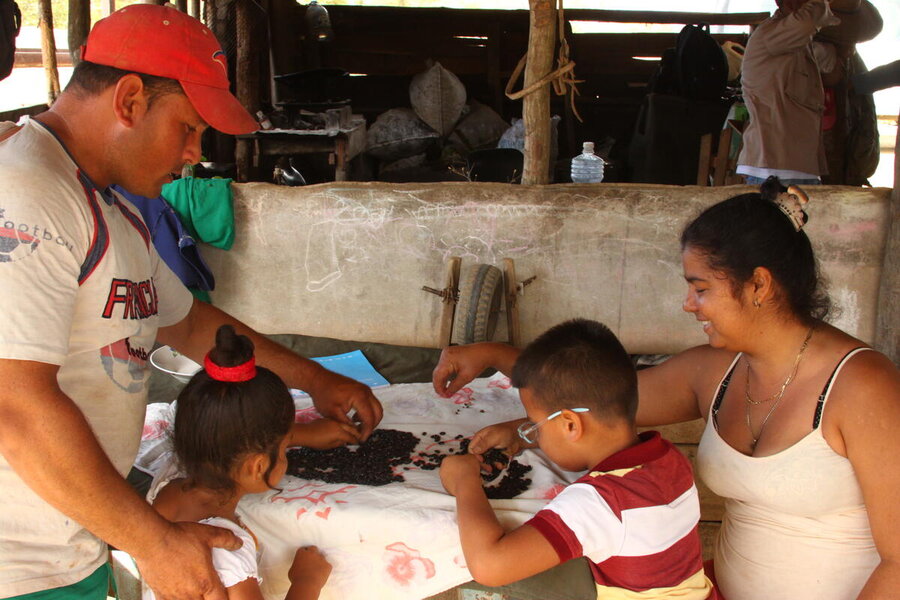
That’s how grower Dixan Pérez, from the eastern province of Las Tunas - one of the island’s driest areas - found a perfect match: UEICA’s drought-tolerant, disease-resistant CubaNa-23 black bean.
“It may not have the greatest yields,” Pérez says, “but it is rich in protein, iron and zinc, which I thought was important for my children.”
Evidence shows that regularly consuming this type of bean can help fend off anaemia, which, according to the latest available official data, is highly prevalent in children under 2 in Cuba’s eastern and central provinces, along with the capital Havana.
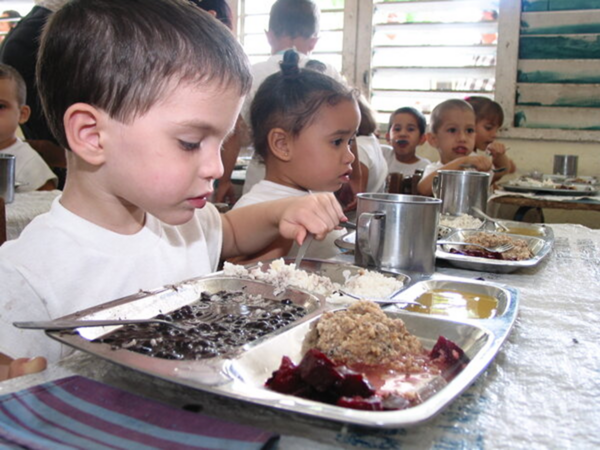
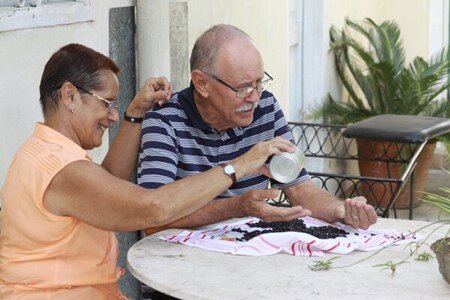
Under the WFP project, Pérez regularly delivers fresh produce to children in schools, pregnant women through the maternity homes and people assisted by the Family Assistance System. “I am proud that children and pregnant women can benefit from the beans I grow on my small farm,” he says.
“Whether producers are resilient or not will depend on many elements – irrigation, soil fertility, crops health,” says Robert Leyva Martínez, who also coordinates one of the WFP-supported projects. “However, if you have varieties that resist or are tolerant to adverse climate conditions, you definitely improve your resilience.”
These projects and initiatives were made possible thanks to contributions from the European Union, the Republic of Korea, the Church of Jesus Christ of Latter-Day Saints, IFAD’s South-South Cooperation facility through the support of the People’s Republic of China, and to the support of WFP and FAO. WFP's main national partners in Cuba include the Ministries of Agriculture, Education, Health, Foreign Trade and Foreign Investment, Domestic Trade, as well as local governments.
Learn more about WFP's work in Cuba
